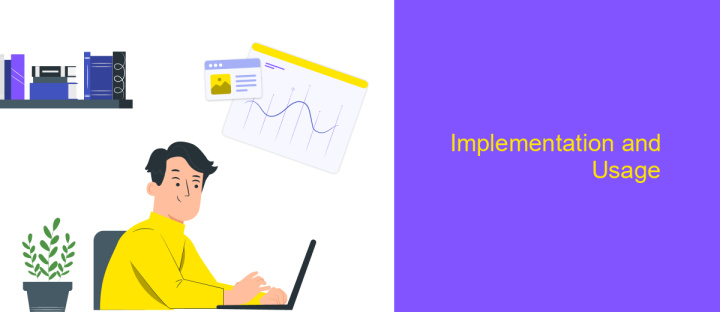API Connector
In today's digital landscape, seamless integration between applications is crucial for efficient data exchange and workflow automation. API Connectors serve as vital tools that bridge the gap between disparate systems, enabling them to communicate effortlessly. By leveraging API Connectors, businesses can enhance their operational efficiency, reduce manual intervention, and unlock new opportunities for innovation. This article explores the key benefits and functionalities of API Connectors in modern business environments.
Introduction
In today's interconnected digital landscape, the ability to seamlessly integrate and communicate between different software systems is crucial. API Connectors serve as vital tools in this integration process, enabling diverse applications to exchange data and functionality efficiently. By acting as intermediaries, API Connectors simplify the complexities of communication protocols, allowing developers to focus on building innovative solutions without getting bogged down by integration challenges.
- Facilitate seamless communication between disparate systems.
- Reduce development time by abstracting complex protocols.
- Enhance flexibility and scalability of software solutions.
- Enable real-time data exchange and synchronization.
- Support a wide range of applications and platforms.
As businesses increasingly rely on diverse software solutions, the role of API Connectors becomes indispensable. They not only bridge the gap between different systems but also empower organizations to leverage the full potential of their digital ecosystems. By providing a streamlined approach to integration, API Connectors drive innovation and efficiency, helping businesses to adapt quickly to changing technological landscapes and meet the evolving needs of their customers.
Key Concepts

API Connectors serve as bridges between different software systems, enabling them to communicate and exchange data seamlessly. They simplify the process of integrating multiple applications by providing a standardized interface that developers can use to connect disparate systems. This is especially useful for businesses looking to automate workflows and improve efficiency by linking various tools and platforms. By using an API Connector, companies can reduce the complexity and time required to set up integrations, allowing for quicker deployment and more agile operations.
One such service that facilitates these integrations is ApiX-Drive. It offers a user-friendly platform that allows users to connect their applications without requiring extensive coding knowledge. ApiX-Drive supports a wide range of applications and provides pre-built connectors, making it easier to automate tasks and synchronize data across different systems. This service is particularly beneficial for small to medium-sized businesses looking to streamline their operations and enhance productivity through effective API management. By leveraging such tools, organizations can focus more on their core activities while ensuring that their systems are well-integrated and efficient.
Benefits and Use Cases

API Connectors offer significant advantages by streamlining the integration process between diverse software applications. They eliminate the need for manual coding, allowing businesses to focus on their core operations while ensuring seamless data flow. This automation leads to increased efficiency, reduced errors, and faster time-to-market for products and services.
1. **Data Synchronization:** API Connectors enable real-time data exchange between systems, ensuring consistency across platforms.
2. **Enhanced Collaboration:** By integrating different tools, teams can collaborate more effectively, accessing shared data effortlessly.
3. **Scalability:** Businesses can easily scale their operations by integrating new applications without extensive reconfiguration.
4. **Cost Savings:** Reducing the need for custom development, API Connectors lower operational costs and resource allocation.
In various industries, API Connectors are utilized to enhance customer experiences, optimize supply chain operations, and facilitate financial transactions. For e-commerce, they integrate payment gateways and inventory management systems. In healthcare, they connect patient data across platforms, improving care coordination. Thus, API Connectors are indispensable for modern businesses seeking agility and innovation in a competitive landscape.
Implementation and Usage

To effectively implement the API Connector, begin by identifying the specific APIs you wish to integrate. Ensure that you have access to the necessary API documentation and authentication credentials. This will enable a seamless connection between your application and the external services.
Once you have the required information, configure the API Connector by entering the endpoint URLs, setting up authentication methods, and defining the data formats. It's crucial to test the connection at this stage to verify that data is being transmitted correctly and securely.
- Identify and gather API documentation and credentials.
- Configure endpoint URLs and authentication settings.
- Define data formats for request and response.
- Test the connection for data accuracy and security.
After successful configuration, the API Connector can be utilized to automate data exchange between your application and the selected APIs. This will enhance functionality and streamline workflows, enabling your application to leverage external data and services efficiently. Regular monitoring and maintenance are recommended to ensure continued performance and security.
Best Practices and Considerations
When working with API connectors, it's crucial to ensure robust security practices. Always use secure protocols like HTTPS to encrypt data in transit and implement authentication mechanisms such as OAuth2 to verify user identity. Regularly update API keys and secrets to prevent unauthorized access. Additionally, limit the permissions of API keys to only what is necessary for the task, reducing potential exposure in case of a breach.
Consider the scalability and flexibility of your API integration. Choose connectors that can handle increased load as your application grows. Tools like ApiX-Drive can simplify the integration process by offering a user-friendly interface and pre-built connectors for various services, allowing you to focus on core development tasks. Always monitor API usage and set up alerts for any anomalies to quickly address potential issues. Lastly, maintain comprehensive documentation for your APIs to facilitate easier troubleshooting and onboarding for new team members.
FAQ
What is an API Connector?
How do API Connectors work?
Do I need programming skills to use an API Connector?
What are some common use cases for API Connectors?
How secure is data transfer through an API Connector?
Time is the most valuable resource in today's business realities. By eliminating the routine from work processes, you will get more opportunities to implement the most daring plans and ideas. Choose – you can continue to waste time, money and nerves on inefficient solutions, or you can use ApiX-Drive, automating work processes and achieving results with minimal investment of money, effort and human resources.

